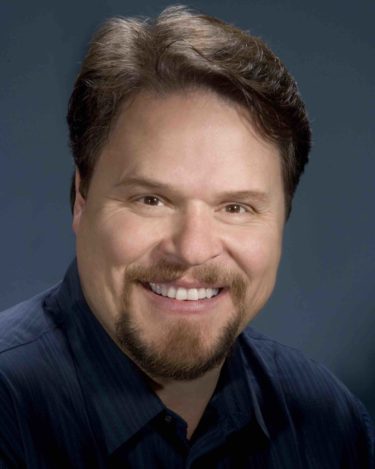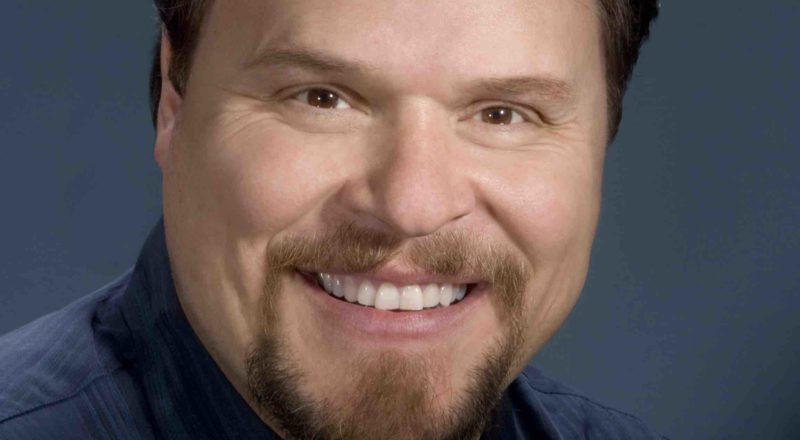INTERVIEW: Opera star Mark Delavan prepares for starring role in Jerry Herman’s ‘Milk and Honey’

Baritone Mark Delavan has graced some of the most prestigious opera stages in the world, including most recently the Metropolitan Opera in New York City. Starting Jan. 28, he’ll artistically jump to a new project in the successful Musicals in Mufti series at York Theatre Company. Delavan will star in Jerry Herman’s Milk and Honey as an unhappily married man visiting his daughter in Israel. Joining him for the simply-staged, book-in-hand production are Alix Korey and Anne Runolfsson.
Delavan’s addition to the show started in an unlikely manner: receiving a friend request on Facebook.
“I got a friend request from [associate artistic director] Michael Unger on Facebook,” Delavan said in a recent phone interview. “He said, ‘By the way, are you available at such and such a time. We’re doing this staged reading of Milk and Honey.’ And I looked at my schedule and said, ‘Lo and behold, yes, I am.’”
Unger found out about Delavan and his work through a mutual friend, Broadway star Marc Kudisch. Both Delavan and Kudisch perform in a show formerly titled Baritones Unbound. They’re working on the title and trying a few new names on for size (American Baritones Unbound is a top choice).
“It’s like a collage of everything,” Delavan said of the baritone-centric show. “We do everything from Gregorian chant and opera all the way to Broadway and Elvis and Johnny Cash. We have lots and lots and lots of dialogue, and we have historical stuff. … Michael Unger called Marc Kudisch and said, ‘I understand you work with Marc Delavan. What do you think?’ Apparently, shocking though it may seem, Marc gave me quite a glowing review, and I moved from the long list to the short list that way because Marc is very well-respected.”
To prepare for the Musicals in Mufti series (Mufti stands for Muff’ Tee, meaning street clothes without the usual trappings), Delavan pretended he was shot out of a cannon. He worked tirelessly on his own. Anytime there was downtime, he sat down and learned more of Herman’s music.
The story depicted in the show involves not only Delavan’s character, who is visiting Israel, but also a lonely widow who finds herself in the country as well. At a time of great historical importance for Israel, Herman’s music and Don Appell’s book focuses on the love and optimism that can be found amongst strangers.
“I’m going for memorization,” Delavan admitted. “I’m trying to get memorized, knowing full well that we’re going to be working [with scripts]. It enables me to communicate a little bit better and tell the story. For instance, I did my hour-and-a-half trek back to Jersey, and when I got home, I was trashed. Laid down in my big fat chair for a minute, and I heard the voice in my head say, ‘Get your butt up off that chair, and go over your music.’ My wife is quite a brilliant pianist, so I said, ‘Babe, do you have time to run over my big numbers?’ She said, ‘Yeah.’ So we took half an hour to run the big numbers, and I said, ‘That’s all I got. Good night,’ and went to bed. So you do what you can when you can. It’s a little bit like the Marine Corps says: Sleep when you can; eat when you can. In this case, look at your music when you can; look at your dialogue when you can.”
Musical theater is a genre that’s fairly new to Delavan. His opera credits are extensive (the Met’s Aida this past November and Der fliegende Holländer in April), but he is beginning to dabble more in productions ripe for Broadway and off-Broadway.
Delavan was taken aback by the maturity of the piece, especially since Milk and Honey was Herman’s Broadway debut. Perhaps it foreshadowed the composer’s Hello, Dolly! and La Cage Aux Folles.
“My character doesn’t know anything,” he said. “He’s there to visit his daughter. He doesn’t know what he’s doing. He doesn’t even know why he’s there, but all of that’s in the music. And in the 1960s, we’re in the middle of the Cold War, and none of us knew if we were going to live to see another day. I was 2-3 years old. I didn’t have a clue, but my parents told me a lot about this. We just didn’t know if we were going to live another day. This was right very, very, very close to the Cuban Missile Crisis.”
Amidst the uncertainty of the time period when it was created, Herman was able to find a lot of positivity and hope. Delavan focuses on those rays of sunshine when considering his character. “Here’s this poor guy, Phil,” he said. “He’s been separated from his wife 20 years. They don’t love each other anymore. She’s living in Paris, and he’s living by himself. There they are, and in the middle of the Cold War, in the middle of this kind of moral thing, there is this real serious problem with propriety. And here this couple is, and they love each other. … It’s a little reminiscent of Jane Eyre when she makes that decision at the end. … I can’t quote it verbatim, but the idea is, no, I’m not going to go with you. But you love me. I know I love you, but I’m not going to go with you. He’s married, and at the end of the piece, it’s slightly bittersweet.”
ON THE HORIZON
After his time in Milk and Honey, Delavan gears up for a semi-staged production at the Orange County Performing Arts Center and the role of Jack Rance in La fanciulla del West at the Michigan Opera Theatre. As he continues from one iconic role to another, the baritone singer is conscious of the shifting trends in the world of opera. Not all of them have made life easier.
“There has been a shift in opera,” he said. “They’re shifting to these sort of post-modern productions and away from the romance and, if you will, away from the hope that a lot of these wonderful, wonderful operas bring us. Even in the midst of some of the tragedies, there’s hope.”
Part of that shift has meant more opportunities in the theatrical world, and that seems to be just fine for the baritone singer. After all, Delavan’s early love of music was with gospel and Broadway show tunes. He would sing “Some Enchanted Evening” and selections from Fiddler on the Roof when he was 20 years old, at an age when it was “grossly inappropriate age wise for those roles.”
“It became a matter of coming to the path and saying, I’m going to have to go right, or I’m going to have to go left,” he said. “I chose opera because it was at the time the most expedient, and when it all comes back around, right now, I’m getting some opportunities to do really wonderful things. … I’m living the dream. It’s unbelievable being in demand, and then on top of doing all these cool opera things, getting the chance to do stuff like this is really mind-boggling.”
It might come as a surprise, but even at this point in his career, Delavan has some hesitancy when beginning a new role. He preferred not to use the words nervousness or excitement. “I prefer the word stark terror,” he said with a laugh. “It’s way more appropriate. Sunday night before the first day of rehearsals, I got in. I got to bed. I thought, OK, I’m going to get a good night’s sleep, and I literally laid there and stressed out for several hours, woke up way too early, came to first day of rehearsals way more nervous than I’d prefer to be. Typically I like walking in like John Wayne. [imitating a cowboy] ‘How are you doing? Yeah, yeah. Ha, ha. How’s everybody? Yeah, yeah. How you doing?’ I was the new kid on block, and they were all looking at me. Oh, yeah, that’s the opera singer. It’s funny when we talk, and we compare notes. We all look at each other with mutual amazement. They look at me: How could you do this with all those foreign languages? And I’m going: My God, how can you guys do this eight-shows-a-week stuff and with all these rehearsals?”
By John Soltes / Publisher / John@HollywoodSoapbox.com
Milk and Honey will play as part of the Musicals in Mufti series at the York Theatre Company in New York City from Jan. 28 to Feb. 5. Click here for more information and tickets.

